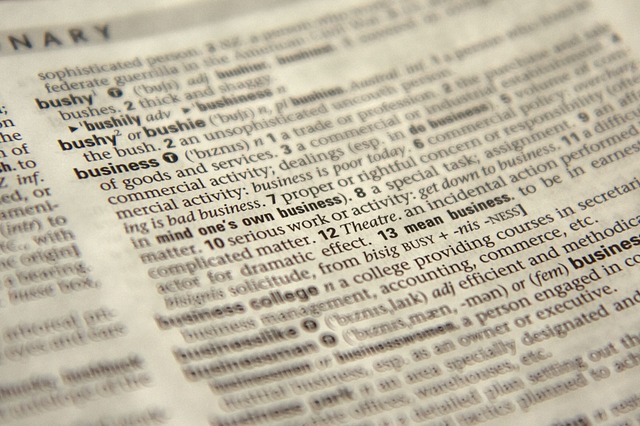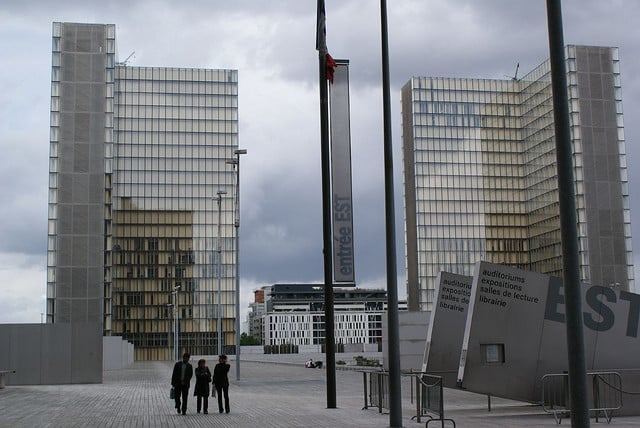Oxford Dictionary Added “Clickbait” to the Dictionary–You Won’t Believe What Happened Next!
We’ll take a look at some of the newest words added to the Oxford English Dictionary this month, and examine some of the broader implications.
The Oxford Dictionary just added a bunch of new words to its dictionary for the quarter. Some people think the recent additions are amazeballs, but others think the whole issue is a hot mess.
So what’s the deal with all of these slang additions? They may make you do a spit take, it’s true, but the words added to a dictionary at a specific time can give a lot of insight into some of the cultural changes taking place. Let’s look, for example, at a few other words added to the Oxford Dictionary relatively recently.
Muggle: [noun, informal]: A person who is not conversant with a particular activity or skill
Hopefully you know this by now, but this word is a term from the Harry Potter books. Muggle is a word that wizards in the book use for non-magical people. The word “muggle” was added to the dictionary by our dear friends at Oxford in 2003—that’s just over ten years ago!
Let’s think about what was happening in 2003. We were in the midst of Pottermania, and Harry Potter and the Order of the Phoenix had just been published. The Harry Potter series was encouraging more and more young people to pick up books and start reading across countries, languages, and cultures.
Likewise, people started to pick up the vocabulary from the page and use it with each other. So why have it added to the dictionary? It captured the moment when Harry stepped off the page and into the cultural zeitgeist--and that’s worth its incorporation into our lexicon, don’t you think?
Meatspace: [mass noun, informal]: The physical world, as opposed to cyberspace or a virtual environment.
You probably already know this, but up until recently, we just called meatspace “the world.” We didn’t even need a specific word for it because there was no such thing as cyberspace or virtual reality before about ten years ago.
Meatspace came out as Internet slang, and as a way to talk about the real world in a light, tongue-in-cheek way that didn’t actually degrade the denizens of the Internet, or people who felt that the things that happened in cyberspace were very much real.
The rise of the Internet has changed so much of how we live our lives--from everything like banking, communication, and entertainment to silly things like reading Buzzfeed listicles for procrastination (and yep, listicle is a word now, too). 'Meatspace' is one great example of the shifts that occur in the way we relate to each other.
Frankenfood: [mass noun, informal, derogatory]: Genetically modified food
Here’s another word that didn’t have a reason to exist until recently. While cross-pollinated and strategically bred crops have been in use since our nomadic ancestors decided to settle down and start growing food, it’s only in the last few years that genetically modified foods have become a hot-button issue.
From their debut to the protests to anti-GMO legislation, genetically modified foods have had a roller coaster of a time in our global conversation. The words that we use to describe them also show our opinions about them!
The word frankenfood doesn’t just give a description of your political views, it also evokes the language of classic literature. Are you amazeballs at English like Mary Shelly? Try our English Level Test to find out.
So are you side-eyeing our friends at the Oxford Dictionary yet? We’ll admit, the addition of some of the words (like YOLO, neckbeard, and hench) seem a little cray.
Well, let’s look at some of the alternatives: the Academie Française is steadily streamlining the French language by systematically removing words that have their roots in English or French teen slang. Which is better?
Table of Contents
TijsB/Flickr The National Library of France (Have the French had it right all along?)
Well, it seems to us that dictionaries are a reflection of a period of time. Sure, we hope that words like anti-vaxing will soon be things of the past, but the incorporation of cotch into everyday speech shows that certain marginalized groups are finally gaining influence. Mansplaining has become a word that women can use to explain a phenomenon that they’ve been experiencing all their lives.
These words, though they may be colloquialisms, speak to the way that languages evolve as living entities. New words can show cultural values, demonstrate technological changes, and ultimately tell us about ourselves. It’s a bit wonderful that there’s a lasting way to keep track of all of those things.
WDYT? Tell us below in the comments.



